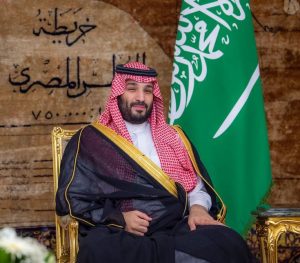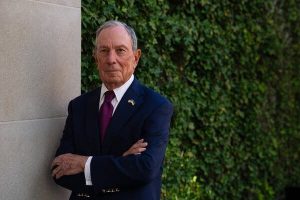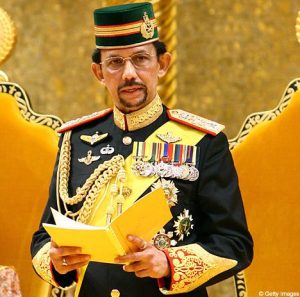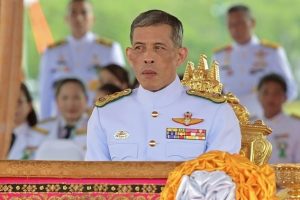Richest Politicians in the World
Determining the “richest politicians in the world” can be a complex task, as wealth and financial transparency vary greatly across different countries and political systems. Additionally, attributing wealth to individual politicians can be challenging, especially when considering assets held by family members or associates.
However, some general trends do emerge. Many wealthy politicians come from families with significant business interests, while others have accumulated wealth through their own professional careers before entering politics. Some hold assets in stocks, real estate, or other investments, while others may derive their wealth from natural resources or land ownership.
https://www.youtube.com/watch?v=A2OHPMMf1mc&pp=ygUgUmljaGVzdCBQb2xpdGljaWFucyBpbiB0aGUgV29ybGQ%3D
What Makes a Politician Wealthy?
Investments and Businesses
Many politicians leverage their positions to invest in lucrative ventures and establish successful businesses. These ventures often yield substantial returns, contributing significantly to their wealth accumulation.
Inherited Wealth
Inherited wealth is another common avenue through which politicians amass fortunes. Family legacies and inheritances provide a significant financial advantage, allowing politicians to wield considerable influence both politically and economically.
Salary and Benefits
While salaries of public officials may not always match those of corporate executives, additional benefits, such as access to exclusive networks and opportunities, can significantly augment their overall wealth.
Top 5 Richest Politicians in the World
Vladimir Putin
Vladimir Putin, the enigmatic leader of Russia, stands as one of the wealthiest politicians globally. Though official figures of his net worth remain undisclosed, Putin’s control over various sectors of the Russian economy, coupled with his alleged stakes in state-owned enterprises, places his wealth in the billions.
Mohammed bin Salman
As the Crown Prince of Saudi Arabia, Mohammed bin Salman, known as MBS, commands immense political power and financial influence. With vast investments in sectors ranging from oil to technology, MBS’s net worth is estimated to be in the tens of billions, solidifying his status as one of the richest politicians on the planet.

Michael Bloomberg
Michael Bloomberg, former Mayor of New York City and media mogul, has amassed a substantial fortune through his successful ventures in finance and media. With a net worth exceeding $50 billion, Bloomberg’s influence extends beyond politics, shaping global conversations on business and philanthropy.

Hassanal Bolkiah
Hassanal Bolkiah, the Sultan of Brunei, presides over one of the wealthiest monarchies globally, with substantial holdings in oil and gas. His fortune, estimated to be in the tens of billions, affords him unparalleled luxury and influence on the global stage.

Maha Vajiralongkorn
Maha Vajiralongkorn, the King of Thailand, commands significant wealth and power, with extensive holdings in real estate and investments across various industries. Despite controversies surrounding his personal life, Vajiralongkorn’s financial standing remains formidable, solidifying his position as one of the wealthiest politicians in the world.

Insights into Their Wealth and Assets
Beyond their official positions, the world’s richest politicians often possess vast portfolios of assets, ranging from real estate holdings to equity in multinational corporations. These assets not only bolster their wealth but also afford them considerable leverage in political and economic spheres.
Controversies Surrounding Their Wealth
The opulent lifestyles and vast fortunes of these politicians frequently come under scrutiny, sparking controversies regarding transparency, accountability, and ethical conduct. Allegations of corruption and misuse of public funds cast shadows over their financial empires, raising questions about the integrity of their leadership.
How Their Wealth Impacts Politics and Society
The immense wealth wielded by these politicians exerts significant influence on global politics and societal dynamics. From shaping economic policies to influencing international relations, their financial clout extends far beyond national borders, shaping the course of history and shaping the lives of millions. For more interesting information visit our website newsblinkers.com
Conclusion
The nexus between politics and wealth continues to be a subject of intrigue and scrutiny in today’s world. As the ranks of the wealthiest politicians swell, so too do questions about the implications of their financial power on democratic values, social equity, and global stability.
FAQs
How do politicians accumulate such vast fortunes?
Politicians often accumulate vast fortunes through a combination of factors. Many leverage their positions of power to invest in lucrative ventures and establish successful businesses. They may also benefit from connections and insider knowledge that enable them to capitalize on lucrative opportunities. Additionally, some politicians come from wealthy backgrounds or inherit significant assets, providing them with a financial head start. However, it’s essential to note that not all politicians amass substantial wealth, and the methods through which they do so can vary greatly depending on individual circumstances and ethical considerations.
What role does inherited wealth play in the financial standing of politicians?
Inherited wealth can play a significant role in shaping the financial standing of politicians. Those born into affluent families often have access to resources and opportunities that can facilitate their entry into politics and enhance their financial success. Inherited wealth can provide a financial safety net, allowing politicians to take risks and pursue ventures that may not be available to those without such resources. Additionally, inherited wealth can contribute to a politician’s social and economic capital, enabling them to build networks and wield influence in both political and business circles.
Are there any legal regulations governing the disclosure of politicians’ financial assets?
Yes, many countries have legal regulations in place governing the disclosure of politicians’ financial assets. These regulations vary depending on the jurisdiction but generally aim to promote transparency and accountability in government. Politicians may be required to disclose their assets, income, and liabilities through financial disclosure forms or public declarations. The extent of disclosure requirements can vary, with some countries imposing stringent reporting obligations, while others have more relaxed regulations. However, enforcement and compliance with these regulations can vary, and instances of non-disclosure or incomplete disclosure may still occur.
How does the wealth of politicians impact their decision-making processes and policy agendas?
The wealth of politicians can significantly impact their decision-making processes and policy agendas. Politicians with substantial personal wealth or ties to wealthy individuals and corporations may be more inclined to prioritize policies that benefit their financial interests or those of their donors. This can lead to perceptions of favoritism, conflicts of interest, and policies that disproportionately benefit the wealthy at the expense of the general population. Additionally, wealthy politicians may have different perspectives and priorities than their less affluent counterparts, shaping their approach to governance and policy-making.
What measures are in place to address concerns about corruption and misuse of public funds among wealthy politicians?
Governments and regulatory bodies implement various measures to address concerns about corruption and misuse of public funds among wealthy politicians. These measures can include robust financial disclosure requirements, ethics codes, and oversight mechanisms designed to promote transparency and accountability. Additionally, anti-corruption laws, investigative agencies, and judicial systems play crucial roles in identifying and prosecuting instances of corruption and financial misconduct.
